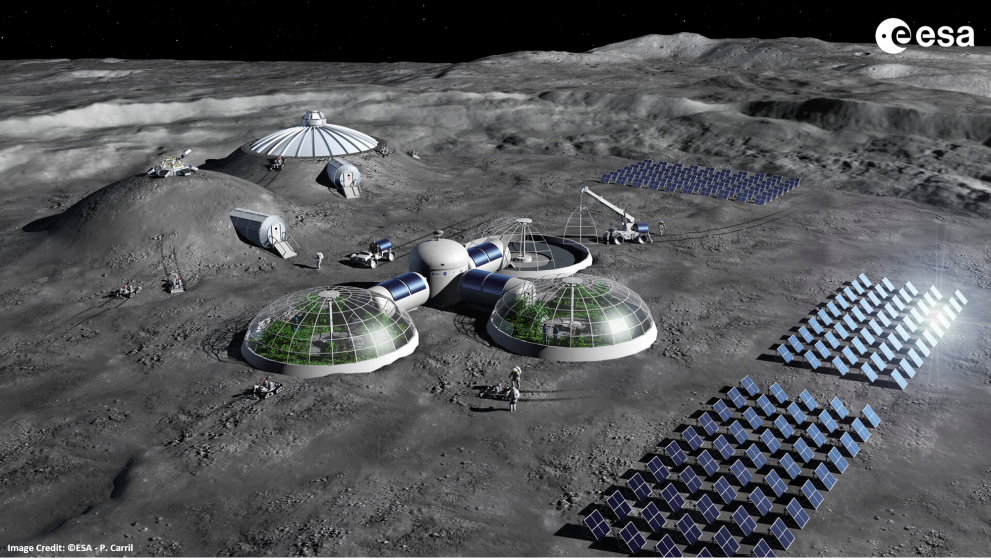
It took a crop of potatoes to keep Matt Damon alive on the red planet in The Martian. The plot of the 2015 science fiction blockbuster could sooner than later become reality: Just as normally as astronauts research and carry out their experiments in space, they will most likely act as farmers and expert recyclers too, in order to get by on very limited resources during their missions. To tackle this issue, the European Innovation Council and the European Space Agency (ESA) have launched a joint call for contributions to collect ideas for implementing the concept of ‘circular economy’ and technologies and sustainable processes in space.
While actual human settlements on the Moon and the Mars are still to come, the fundamentals of living in space are already clear. To make such bases sustainable over the long term, astronauts and potential settlers will have to recycle their air, water and nutrients as much as possible to minimise their reliance on long, costly supply lines back to their distant home planet.
Reuse and recycling in space
The principal aim of the joint call is to seek out concepts targeting the reuse and recycling of water, food, oxygen, nitrogen and other scarce resources from apparent waste material. Alongside their application possibilities in space, these solutions should also be applicable to Earth as they create synergies with terrestrial moves towards a circular economy.
The underlying idea behind this concept is not new. For example, the International Space Station already recycles all the water it can, including crew urine, sweat, moisture from wet towels, and even the humidity from astronauts’ breathing. And for more than three decades now, the ESA-led Micro-Ecological Life Support Alternative, MELiSSA, programme has investigated the designing ‘regenerative’ or closed loop life support systems for crewed missions into deep space.
Send us your ideas
Guided in part by MELiSSA experience, ESA and the EIC have selected four dedicated challenges
- Circular System Design Methodology
- Circular Waste Management
- Circular Urine Management
- Circular Food Management
EIC and ESA are looking for your ideas for critical technology building blocks, policy, legislation and investment frameworks to tackle the mentioned challenges. Jointly, EIC and ESA will evaluate your contributions and the winning contributors will be invited to a workshop, which aims to produce joint strategy proposal for the coming decade.
Do you want to get involved? More details on the submission process and challenges are provided in the letter of invitation and the proposal template. Please also check out the introductory webinar and reach out to EIC-ESA [dot] WhitePaper ec [dot] europa [dot] eu (EIC-ESA[dot]WhitePaper[at]ec[dot]europa[dot]eu) if you have any questions.
ec [dot] europa [dot] eu (EIC-ESA[dot]WhitePaper[at]ec[dot]europa[dot]eu) if you have any questions.
The deadline for submissions closes on the 1 March 2022 at midnight.
Sources
Details
- Publication date
- 19 January 2022